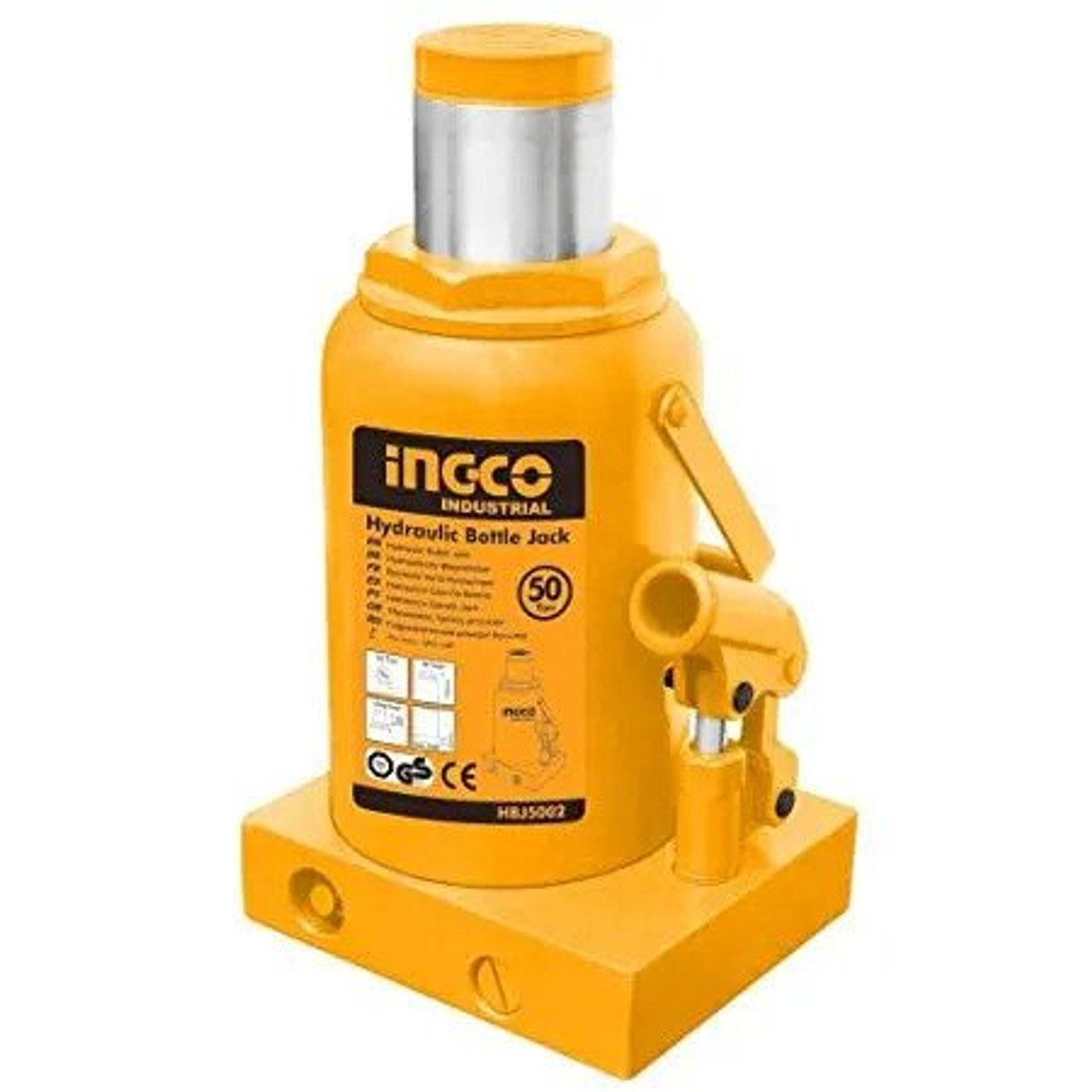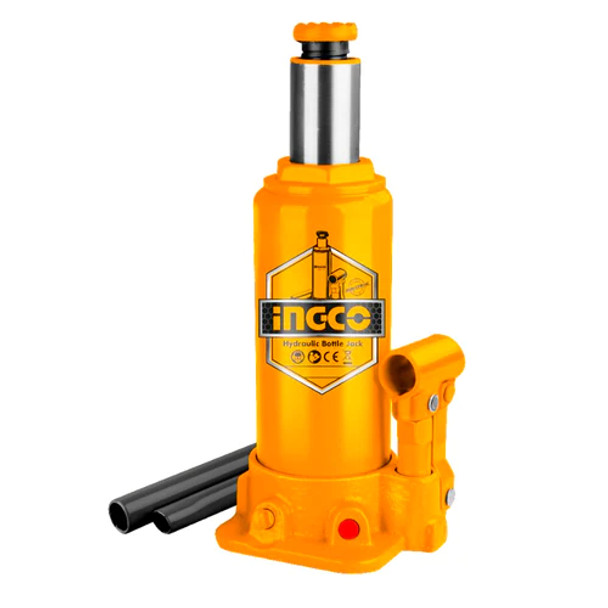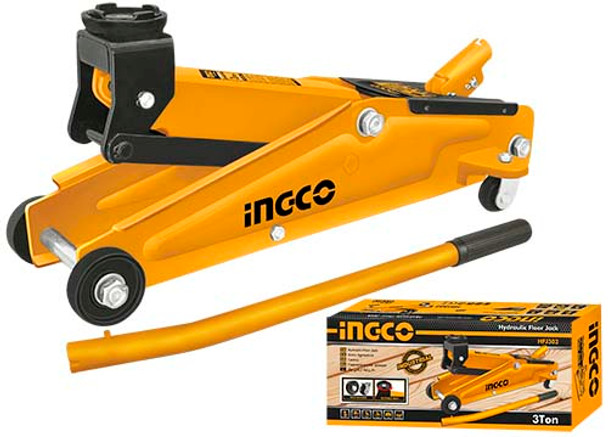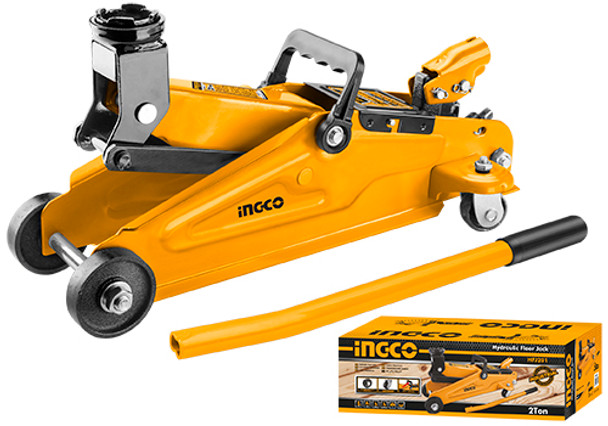Common Hydraulic Jack Problems and How to Fix Them
Key Takeaway
- Hydraulic jacks are essential tools but require regular maintenance to function efficiently.
- Common problems include failure to lift, slow performance, fluid leaks, and difficulty holding pressure.
- Many issues can be resolved by checking hydraulic fluid levels, replacing seals, and cleaning or lubricating components.
- Preventative maintenance, such as avoiding overloading and inspecting for leaks, can extend the lifespan of your jack.
Introduction
Hydraulic jacks are indispensable tools used across various industries for lifting heavy objects with minimal effort. From automotive repairs to industrial applications, their reliability makes them a go-to solution. However, like any mechanical device, hydraulic jacks can develop problems over time. Proper maintenance and timely fixes can keep your jack functioning efficiently. This guide explores common hydraulic jack issues and how to address them effectively.
Ingco Hydraulic bottle jack 50 Ton HBJ5002
Common Problems with Hydraulic Jacks
1. Jack Not Lifting Properly
One of the most frequent issues with hydraulic jacks is their inability to lift objects properly.
Causes:
Insufficient hydraulic fluid, which reduces lifting capacity.
Air trapped in the hydraulic system, causing erratic performance.
Worn or damaged seals leading to pressure loss.
2. Slow Lifting or Lowering
When your jack takes too long to lift or lower, it indicates a problem.
Causes:
Contaminated or degraded hydraulic fluid affecting system performance.
A worn-out pump unable to generate sufficient pressure.
Faulty or clogged valves restricting fluid flow.
3. Jack Leaking Hydraulic Fluid
Hydraulic fluid leaks are not only messy but also dangerous as they compromise the jack's performance.
Causes:
Worn or damaged seals allowing fluid to escape.
A cracked hydraulic reservoir or cylinder.
Overfilling of hydraulic fluid leading to spillage during operation.
Ingco Hydraulic bottle jack 20 Ton HBJ2002
Troubleshooting and Fixing Hydraulic Jack Problems
How to Fix a Jack Not Lifting Properly
1. Check Hydraulic Fluid Levels: Open the fluid reservoir and refill it to the recommended level using the correct hydraulic oil.
2. Bleed the System: Release trapped air by fully lowering the jack and opening the release valve to purge the system.
3. Inspect and Replace Seals: Worn seals should be replaced promptly to restore pressure integrity.
How to Resolve Slow Lifting or Lowering
1. Flush and Replace Fluid: Drain the contaminated fluid and refill with clean, high-quality hydraulic oil.
2. Inspect Pump and Valves: Examine the pump for wear and test the valves for blockages. Replace faulty components as needed.
Addressing Hydraulic Fluid Leaks
1. Locate the Leak Source: Carefully inspect the seals, reservoir, and hydraulic lines.
2. Repair or Replace Damaged Components: Replace cracked reservoirs or worn seals to prevent further leakage.
Repairing a Stiff or Loose Handle
1. Lubricate Moving Parts: Apply a suitable lubricant to the pump handle’s pivot points to ensure smooth movement.
2. Check for Debris or Rust: Clean and remove any rust or dirt obstructing the handle mechanism.
3. Replace Damaged Components: If the handle is still not functioning properly, inspect for damaged internal parts and replace them as necessary.
Fixing a Jack That Won’t Hold Pressure
1. Test the Bypass Valve: If the jack lowers itself under load, the bypass valve might be faulty. Replace or repair it as needed.
2. Inspect for Internal Leaks: Check for signs of hydraulic fluid leaking inside the jack. Disassemble the jack carefully to repair or replace worn internal seals or valves.
Hydraulic Floor Jack 3Ton INGCO (HFJ302)
Preventative Maintenance Tips for Hydraulic Jacks
Preventative maintenance is key to extending the lifespan of your hydraulic jack and avoiding costly repairs.
1. Check Hydraulic Fluid Levels Regularly: Ensure the fluid reservoir is filled to the recommended level. Use the correct type of hydraulic fluid specified by the manufacturer.
2. Inspect for Leaks: Regularly check seals, cylinders, and reservoirs for signs of leaks and replace worn components promptly.
3. Clean and Lubricate: Wipe down the jack after each use to remove dirt and grease. Lubricate moving parts to reduce wear and tear.
4. Avoid Overloading: Never exceed the maximum weight capacity of your hydraulic jack. Overloading can cause permanent damage to the system.
5. Store Properly: Keep your jack in a clean, dry place to prevent rust and contamination from debris.
When to Seek Professional Help
While many hydraulic jack issues can be fixed at home, some problems require professional expertise.
Signs You Need Professional Help:
1. Persistent fluid leaks despite replacing seals.
2. A completely non-functional pump mechanism.
3. Damaged or bent structural components of the jack.
Professional repair services can restore your jack’s functionality and ensure safe operation. Always consult a qualified technician for advanced repairs.
INGCO Hydraulic Floor Jack HFJ201
Frequently Asked Questions
1. Why is my hydraulic jack not lifting?
This could be due to low hydraulic fluid, air in the system, or worn-out seals. Check the fluid level, bleed the system, and replace any damaged seals to fix the issue.
2. What type of hydraulic fluid should I use in my jack?
Always use the fluid recommended by the manufacturer. Using incorrect fluids can cause performance issues and damage internal components.
3. How can I fix a hydraulic jack that leaks fluid?
Locate the source of the leak, which could be from seals, reservoirs, or valves. Replace the damaged parts and ensure the system is not overfilled.
4. How often should I perform maintenance on my hydraulic jack?
Basic maintenance, like checking fluid levels and inspecting for leaks, should be done before each use. A thorough inspection and lubrication should be done every few months or as recommended by the manufacturer.
5. Can I repair a bent or damaged hydraulic jack myself?
Structural damages like a bent frame or cylinder should be addressed by a professional. DIY repairs in such cases can compromise the safety and functionality of the jack.
Readers Also Watched...
Related Articles
Troubleshooting Common Hydraulic Jack Issues
Conclusion
Hydraulic jacks are essential tools for various lifting applications, but like all machinery, they are prone to wear and tear over time. By identifying common problems and implementing the appropriate fixes, you can extend the life of your jack and ensure its reliable performance. Regular maintenance and timely repairs not only prevent costly breakdowns but also enhance safety during operation.
Keep your hydraulic jacks in top condition with premium maintenance supplies and accessories fromGZ Industrial Supplies. Browse our catalog today for durable, high-performance solutions that cater to all your hydraulic equipment needs!
Recent Posts
-
The Ultimate Guide to Understanding the Difference Between Ethylene Glycol and Propylene Glycol
Introduction Glycols are versatile compounds widely used across various industries, from automotive …Apr 16, 2025 -
What are Agricultural Machinery
Introduction Agricultural Machinery is also used to improve the wide range of production prac …Apr 14, 2025 -
The Best Electrical Wire in Nigeria 2025 (Updated)
Introduction Electrical wires are the basic unit of every electrical system. Electrical wires …Apr 14, 2025










